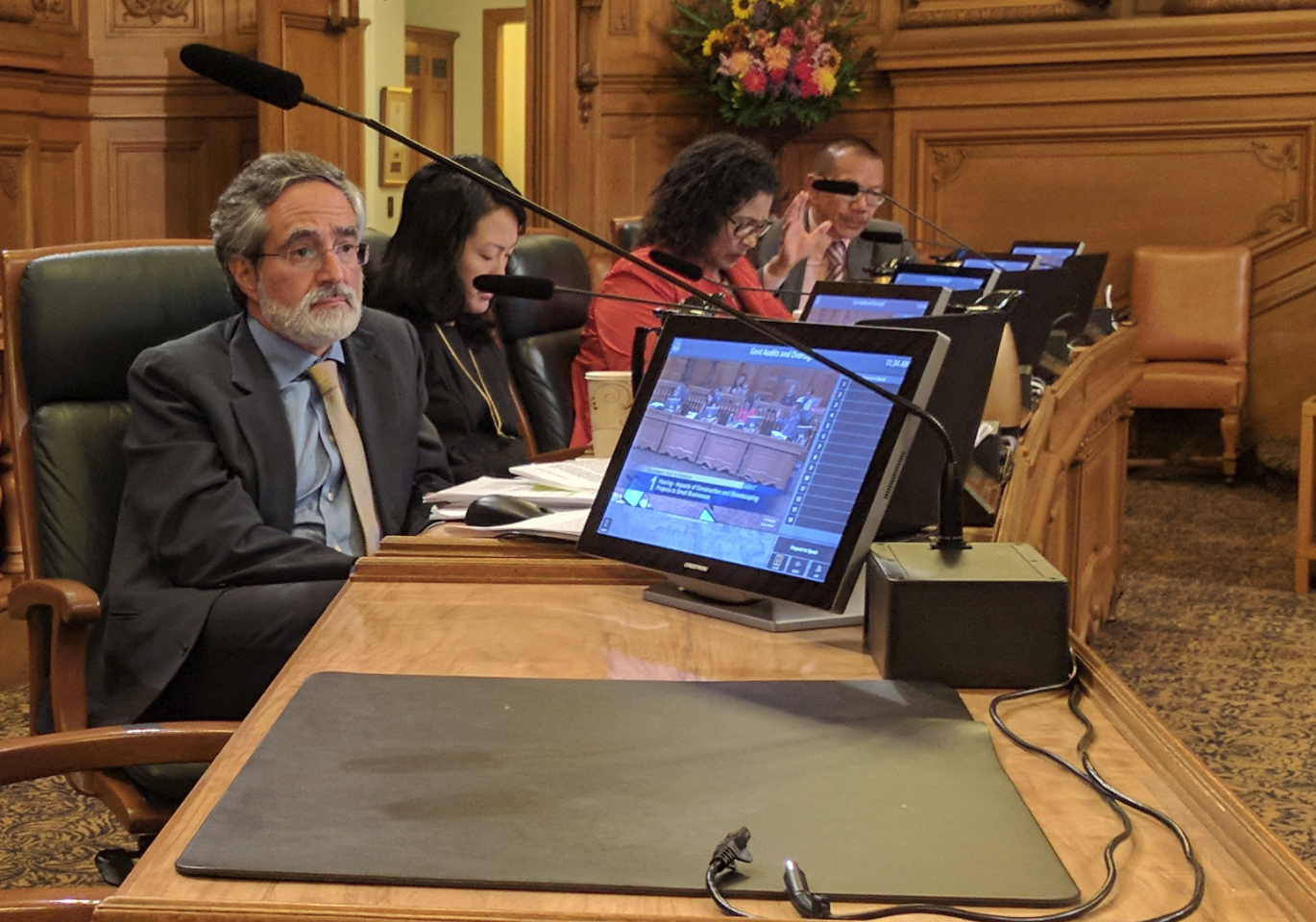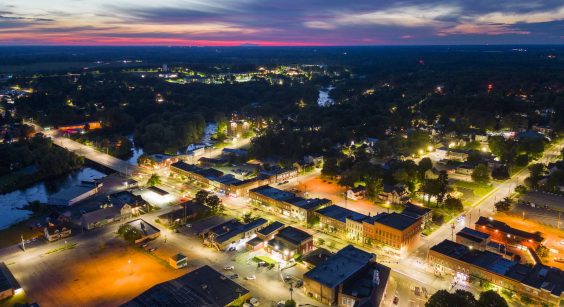At this morning's meeting of the Government Audit and Oversight Committee, four of San Francisco's Supervisors made it clear they want to give money directly to businesses that are taking losses because of the city's many ongoing construction projects. "Small businesses are feeling squeezed on every side. Small businesses are already struggling to keep up in an increasingly expensive city. For residents, impacts are short-lived, but for merchants these impacts can seal their fates," said Supervisor Norman Yee, whose constituent merchants in West Portal were hit by sewer and curb work a couple of years ago. "I am committed to exploring how to prevent future businesses from shuttering."
Of course the question is how does a city determine if a business shuttered because of construction.
The committee listened to testimony from several city agencies, most notably the City Controller's office, which is currently working on ways to quantify small-business losses attributable to sewer, water, street improvement, and transit projects, such as the ongoing Central Subway and the recently completed Castro Street sidewalk widening. City Controller Ben Rosenfield said they looked at six different projects around the city, studying sales taxes from local merchants. So far, results are mixed.
"So what we’re asking is what are our specific impacts on specific businesses before construction and after. Sales tax information is a great proxy for revenues from a given business," he explained. The only problem is, they only really tell the city about retail businesses, not services. "Sales tax doesn’t touch most services. So to the extent that a business is service-based, we don’t have a feel for it."
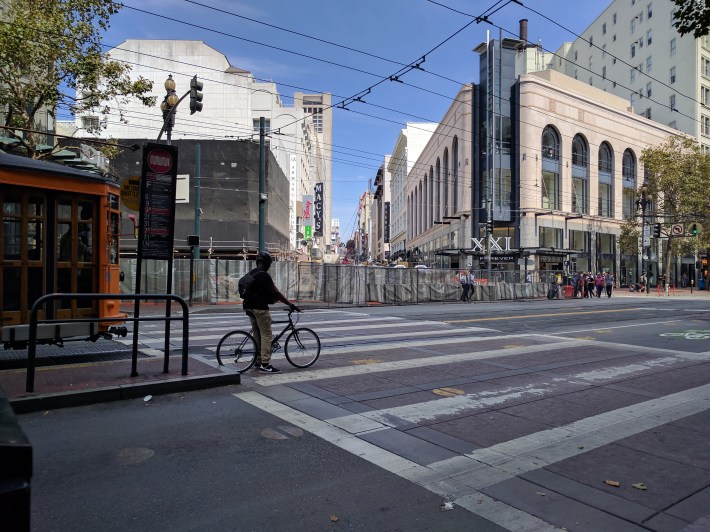
The Controller's office compared sales taxes against averages for three years, using neighboring businesses, the larger zip code area, and the city as a whole to control for larger economic factors. They also looked at taxes before, during, and after construction concluded, to get an idea what happens after work is finished.
Because of confidentiality agreements, he could not discuss any specific businesses.
With those caveats, he said that so far they could only identify real, bottom-line impacts on sales when construction projects were prolonged. "The longest ones were West Portal and Castro, where business was down 12 to 13 percent," he explained, with those projects lasting roughly a year to a year and a half. "Margin of error is plus or minus six percent."
For shorter projects, of eight months or less, there was no statistically significant loss of revenue.
Note that when Streetsblog asked businesses along 4th Street in SoMa, they claimed losses of twenty to forty percent.
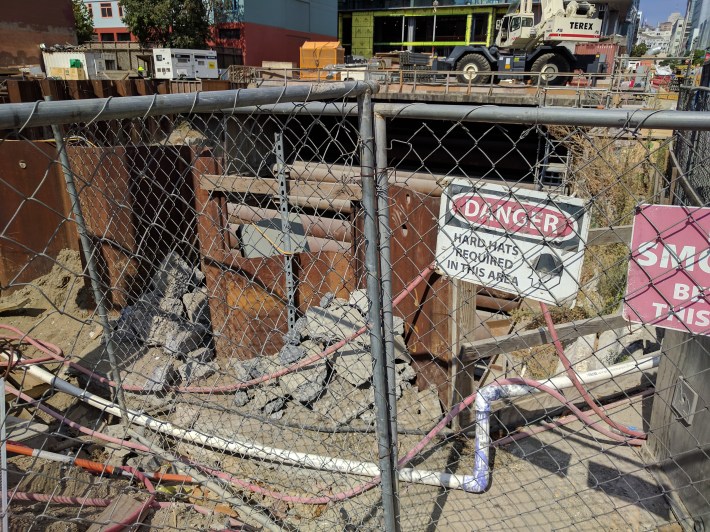
Meanwhile, Rosenfield said some businesses in the Castro construction zone actually did better during construction.
Several supervisors pointed out that Los Angeles gives up to $50,000 in compensation to businesses around its light rail projects. And, as reported in the SF Chronicle, Mayor Lee's proposed "Construction Mitigation Program" would offer up to $10,000 for businesses. Additionally, the Office of Economic and Workforce Development already offers up to $10,000 in merchant assistance, but that has to be used for specific improvements.
Either way, Rosenfield's research is just getting started and the controller wants to expand the data set. "We are working with SFMTA to isolate similar data and effects from the T-third construction to see how construction impacted businesses in the Dogpatch and Bayview."
Whatever the data shows, the Supervisors made it clear they have been getting an earful from their merchant constituents, and the public comments segment of the meeting was no exception. "For two decades almost our neighborhood has been torn up by one kind of streetscape construction or another," said Dan Macchiarini, who has a jewelry design business in North Beach. "The impacts on small business in our neighborhood have been profound and horrific." Macchiarini also complained that pedestrian bulbouts and bus boarding islands "were not needed."
Jenny Werba, whose fitness business, United Barbells, faces the Central Subway construction on 4th Street, said they have suffered losses because people "can’t even see into the windows." She also complained that SFMTA notified them that they would be working on the sidewalks in the evening at one point, and then abruptly changed it to the morning, greatly inconveniencing her customers. "We’ve had a significant reduction in memberships."

Edward Siu, who runs a tour business in Chinatown, said he wants the city to work harder to promote Chinatown to tourists during construction. "I don't see any advertising... I'm hoping the city can do better."
All the Supervisors made it clear that they thought the transit, water, and sewer projects were worthwhile and necessary--their concern was about the intensity of the construction, a perceived lack of communication between merchants and city agencies, and the failure to ameliorate the damage done to merchants' bottom lines. "These businesses are paying taxes. They’re hiring people. Most are law-abiding businesses doing their part," said Supervisor London Breed, whose constituents in the Lower Haight have complained about night time construction noise, loss of parking, and general disruption. "I just think we owe it to the small business community to think about solutions and possible compensation."
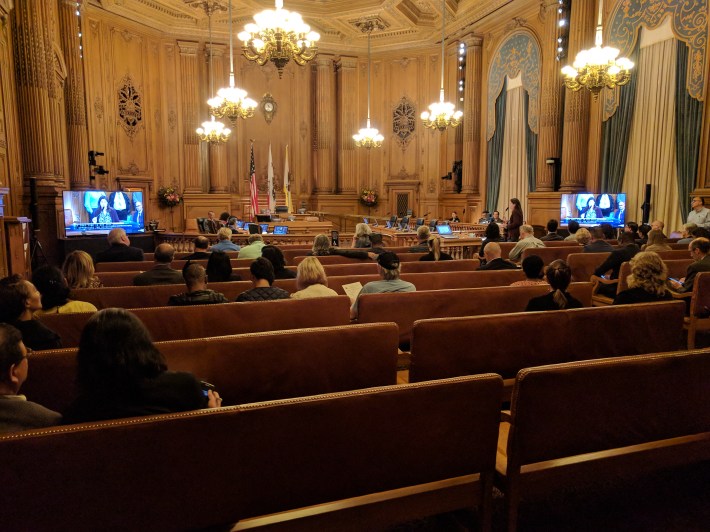
"I realize we don't want to open up Pandora’s Box," said Peskin, "But this city has to figure out a way to ameliorate impacts."
